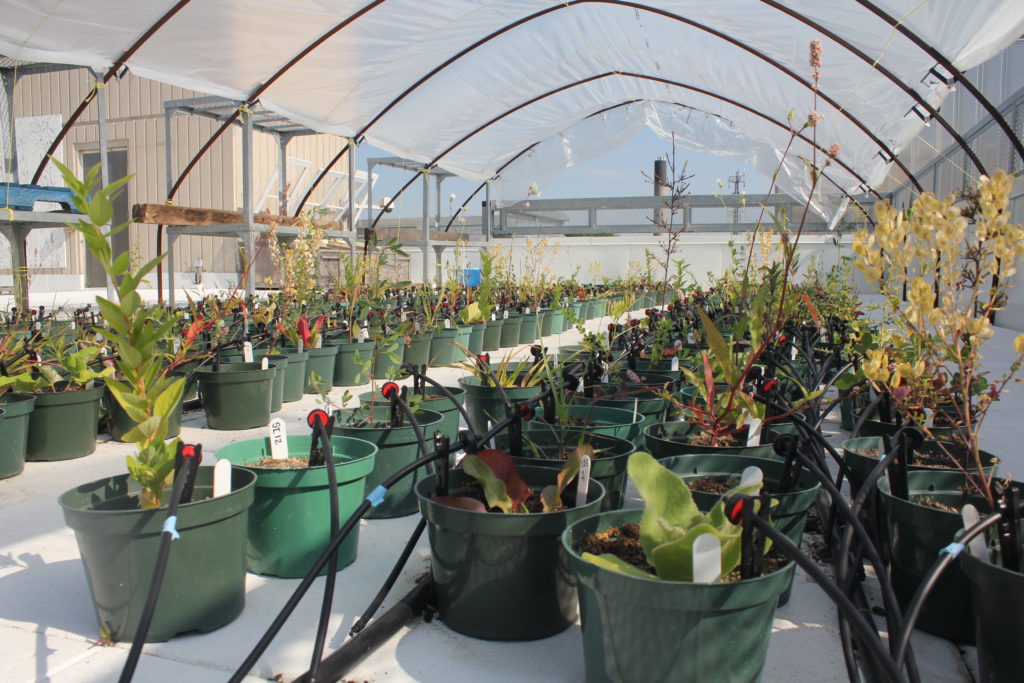The ecological importance of the plant root microbiome across angiosperms
Diverse assemblages of microorganisms (a.k.a. microbiomes) are found everywhere we look. In the environment these microbial communities are critical for the turnover of energy and nutrients, processes which scale to influence the maintenance of global biogeochemical cycling. In animal hosts the gut microbiome plays an important role in nutrient acquisition, development, and immunity. Our understanding of the importance of the plant root microbiome is less developed. This project’s aim was to characterize variation in the root microbiome across a wide breadth of host species and understand its role plant drought responses and plant-soil feedbacks (see plant-soil interactions). Drought and plant-soil feedback are important and widespread aspects of pant ecology in natural and managed systems.
Along the way of this project we also found that sequence variation in host plant plastids reduces the effectiveness of universal peptide nucleic acid (PNA) clamps. These clamps are designed to block the amplification of host plant DNA during the analysis of plant-associated microbiota. A fun collaboration with Pat Lu-Irving, Katrina Dlugosch, and David Baltrus, yielded an easy method to restore function of the PNA clamps under variable host plant plastid sequences. We tested the method using members of the Asteraceae but the method can be generalized to any taxa.
Publications:
Fitzpatrick CR, Copeland J, Wang PW, Guttman DS, Kotanen PM, Johnson MTJ. 2018. Assembly and ecological function of the angiosperm root microbiome. Proceedings of the National Academy of Sciences USA. 115: 1157-1165. PDF | Resources
Fitzpatrick CR*, Lu-Irving P*, Copeland J, Guttman D, Wang P, Baltrus DA, Dlugosch KM, Johnson MTJ. Microbiome doi: 10.1186/s40168-018-0534-0. PDF | Resources
*contributed equally to this work


